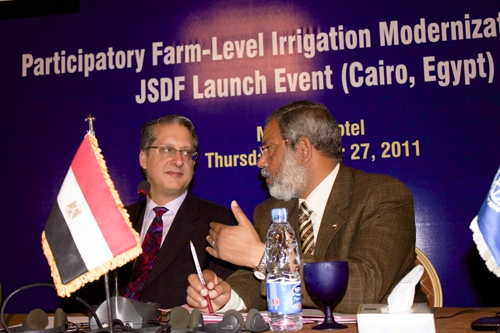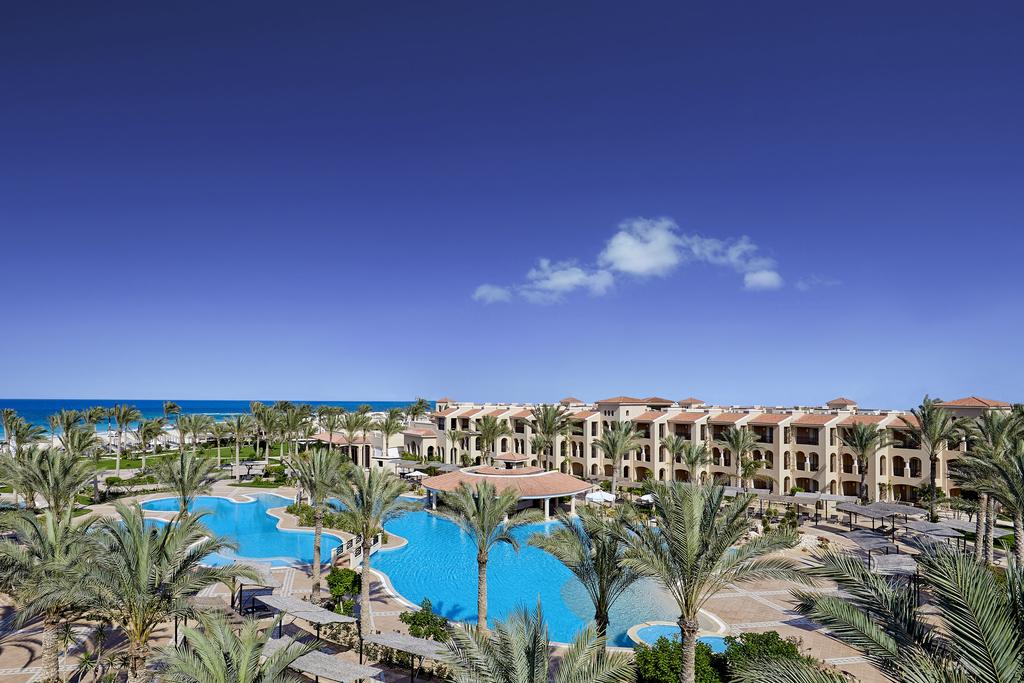
As Egyptian civil society calls for the eradication of debts incurred under former President Hosni Mubarak, Egypt’s government continues to borrow money from the World Bank for development programs that were negotiated under Mubarak’s government.
There are nearly 30 World Bank projects currently being implemented in Egypt, initiatives ranging from improving sanitation, irrigation and natural gas pipelines to strengthening legal rights for women and remodeling the Cairo International Airport.
The two largest projects are financed by World Bank loans of US$600 million each. Both focus on improving the delivery of electricity in Giza and Ain Sokhna.
Although Egypt turned down International Monetary Fund and World Bank budget support in June, Finance Minister Hazem al-Beblawy recently said that Egypt’s current financial crisis can only be alleviated by an influx of foreign loans.
Activists and leaders worry that borrowing from international financial institutions will make Egypt beholden to Western economic interests and result in long-term indebtedness. Monday has been proclaimed a national day to demand the forgiveness of Egypt’s foreign debt by Egyptian and international activists.
World Bank officials, though, say that Egypt’s foreign-held debt of approximately US$35 million is too little to pose a great risk. They argue that the greater threat is Egypt’s flurry of domestic borrowing, which could result in the economy not having enough cash to recover. Egypt’s internal debt is nearly four times its external debt.
“I think it’s well known that Egypt has a very low foreign external debt, whereas they have a very high, internal domestic debt,” said Inger Anderson, the recently appointed World Bank vice president for the Middle East and North Africa.
“A concern that we would have for any country that has high domestic debt is always whether this drives out private sector ability to borrow in the domestic market,“ Anderson added.
The most recent World Bank loan is for a farm irrigation project that will help farmers in the Delta convert traditional water canals into more efficient PVC pipe systems. More efficient water delivery will result in a greater crop yield, project organizers said.
“Most importantly for a new Egypt, this is an opportunity to put money into small businesses in rural communities,” said Julian Lampietti, team leader for the irrigation modernization project, at its launch on Thursday.
Local businesses and farmers will be contracted for the placement and construction of the new irrigation network on their own lands.
The project is financed by a US$100 million loan from the World Bank and a US$50 million loan from the French Agency for Development, along with a US$3 million grant from the government of Japan.
Egypt Agriculture Minister Salah al-Sayyed Youssef also lent his support to the loan and project and said his ministry plans to continue working with the bank to help accomplish the government’s goal of modernizing irrigation systems on 5 million feddans of land before 2030.
He approved of the project, he said, because of its focus on strengthening local community. As for taking loans, the minister said that they were necessary for economic recovery.
“I prefer to have strongly funded agencies,” he said. “That way they have a better capacity for building and producing jobs. And that is a good thing for the country.”
The projects, most of which are related to development issues, are part of the World Bank’s professed mission of alleviating poverty and advancing “sustainable globalization.”
Egyptian government and World Bank officials say programs are moving forward as planned before the 25 January revolution, as they will help a transitioning and economically weak Egypt get back on its feet.
There are no plans to review projects that were negotiated under the former president, said David Craig, World Bank country director for Egypt. The projects will be closely monitored as before, in line with the bank’s policy, he said.
The World Bank, which has been loaning Egypt money since 1945, is also trying to align itself with the spirit of a new Egypt.
Transparency, governance, and social accountability were the messages of the protests in Egypt, said Anderson. She admitted that there have been times in the past when the World Bank could have done more on these fronts.
The World Bank and its twin institution, the International Monetary Fund (IMF), are often accused of being opaque about conditions in their dealings with countries.
“I think some of the lessons we take away from the Arab Spring, not just in Egypt but beyond, is that we need to figure out better how we can reflect those values in our own World Bank programs,” Anderson told Al-Masry Al-Youm on her first visit to Cairo since her appointment.
The bank is trying to highlight the differences between the World Bank and the IMF. The bank lends for the purpose of development programs, while the goal of the IMF is to maintain international financial stability through lending money to countries and large financial institutions. The World Bank has offices and staffs around the world, including in Egypt, while the IMF is centrally managed from Washington, DC.
The World Bank is making clear efforts at transparency. They now profile all their projects in Egypt on their website.
It is unclear whether the social and economic benefits of the programs or the domestic liquidity shortage will lead to more help from the World Bank in the future. Aversion to international debt runs deep.
Anderson said she understands this desire to be free from debts, but that in Egypt’s case, some foreign loans may be necessary.
“No one wants to see one’s country indebted,” she said. “But the issue here is what kind of debt we are talking about. There is debt that can bring growth and development, and there is debt that can pull you down further.”




